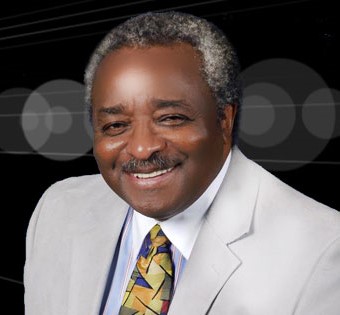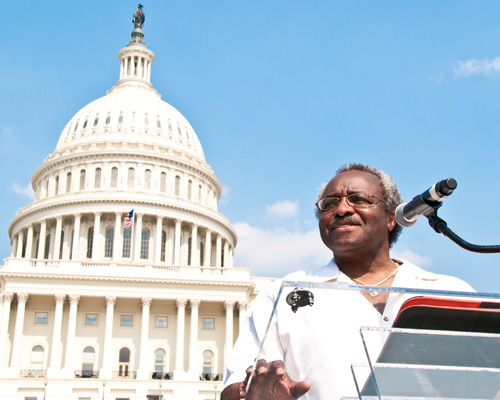15,000 years in America — will the Redskins migrate again?
The idea of race is an antiquated one — not quite old enough to persist, perhaps, yet pervasive enough to discuss. This Spring, for example, the United States Supreme Court will consider the revocation of the Redskins trademark, held by the National Football League Team based in Washington, D.C. bearing that name. At play is the decision of whether or not this word is disparaging to some, and the underlying message it sends to persons who do not self-identify as “Red” thus raising a classic conflict between the First Amendment and the right to profit greatly from its use.
Popularly, nationwide polls have shown that, when it comes to the use of the name Redskins many don’t care. The Logo, some argue, is at least more elegant than the current caricature used for the Cleveland Indians, a Major League Baseball Team. The name, it is said, was given by William “Lone Star” Dietz, a proclaimed indigenous man who coached the Team before the move to the Nation’s Capital.
However, some have argued that the name is so offensive they’d prefer the Team be called after its now hometown, a place where full representation of its citizens is still denied; and the combined namesake of our founding father, President George, who first orchestrated the legacy of failed treaties between the States and the Natives, and Cristóbal Colón (“Columbus”) who led the rape and enslavement of original peoples as a pioneer for the European immigrants who settled in the Americas a mere 500 years ago.
The trauma, in this particular word, is loaded not unlike “nigger.” Yet, there is a stance for it not to be regarded as disparaging. After all, before the noose of so-called inferiority was albatrossed to “N-G-R,” it was a word that most simply was derived from the definition “black skin;” and today, many black — and brown skin — people pridefully refer to themselves as Black. Similarly, many of our paler-skinned brothers pridefully refer to themselves as “White” (although some of these same brethren would likely deny the North African Whites who are included in this particular Census category).
Indeed, in these United States “Black” and “White” are both Census options, while “Red” is not.
Further, “Black” has received trademark approval through such prominent entities as Black Entertainment Television. So too has the now-widely-understood as a disparaging word, “bitch;” and the National Association for the Advancement of Colored People, when “colored” was once a distinction for segregation like “nigger;” and the “Boston Celtics,” alongside a logo of a winking, in-athletic looking man adorned in four leaf clovers, despite the history of the Irish-Americans as drunken pariahs.
Why not include “Red” in the national discussion, when it is Natives who long believed in the union of the four directions of man? Must we then also look to the many instances of its use throughout the U.S. where “Redskin” is the official name of a road or trail way, and the other active trademarks, like the Washington Redskin Potatoes apparel line, and the snack, My Dadz Nutz — Caramelized Jumbo Redskins?
It is a noble idea, yes, to not separate man by skin at all, especially when we are already amid such vicious battles over political borders. However, more importantly than what we call ourselves is how we treat ourselves. Let us call for more prominent advocacy of Native culture, research funding for Black Natives (who have lost both their African and indigenous tribes in slavery, yet maintained the lessons of the four directions with such affectionate words as “Redbone”), and greater access to the Redskins games (From D.C. one must have a car or take multiple trains and buses to journey to FedEx Field and the headquarters for employment. Notably too, there isn’t a Redskins retail store in D.C.).
The genius of the First Amendment, my Father often reminds me, is that it allows you to say what you think; write what you feel; practice the faith in which you believe or not; peaceably assemble and petition the Government for grievances (many are making use of that aspect of the Amendment these days). Thus, perhaps the United States Supreme Court should ponder the truth that the best anecdote for speech we do not like is speech we like.
Personally, for me, a Black Native of the District of Columbia, though willing to stand with those who are mad, have chosen not to change my name — the first being a legitimate African name tethered to the last of Irish-English descent. I choose this knowing “Sia,” to be both a declaration of my individuality and a taunt that I’ve heard much of my life (“see ya, Sia,” or “Sia [see ya], wouldn’t want to be ya”). I choose to call myself what my parents named me for I knew “Sia” long before slang dragged it into a definition of despair; and before strangers called me “Pocahontas,” or asked repeatedly, “What are you?” And even before I was complimented for my “rosy” complexion, and told that I am Black. Similarly, come August, I choose and will choose to cheer for the Redskins in name at least (it is an incredibly violent game), despite our losing streak and my prayer to quell the tears of Natives, by reason of the fact that I remember the ‘80s and our proud football heritage.
© Living With The Law 2017






